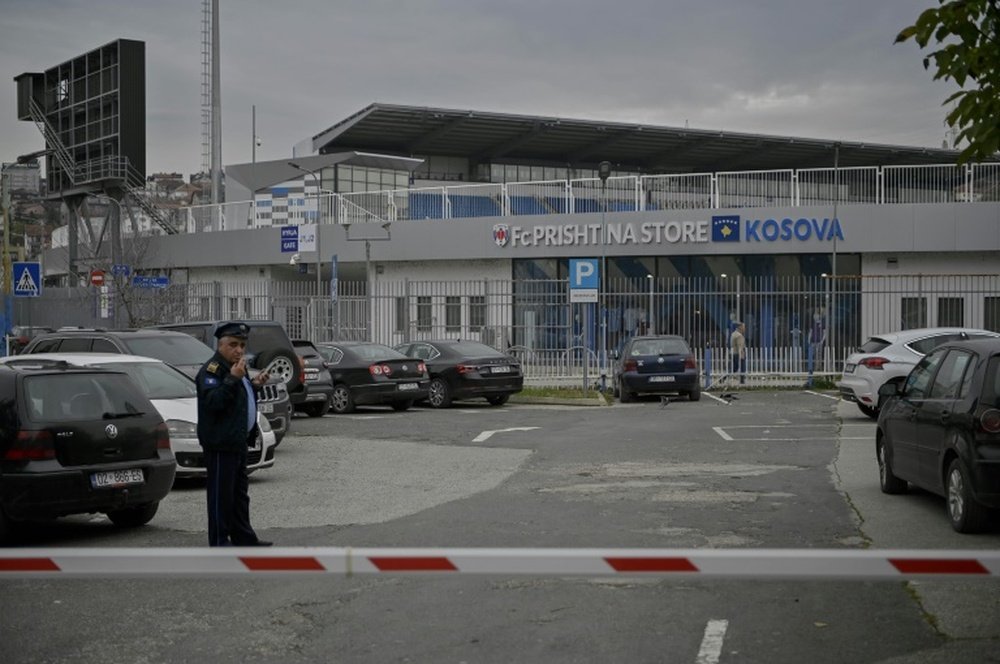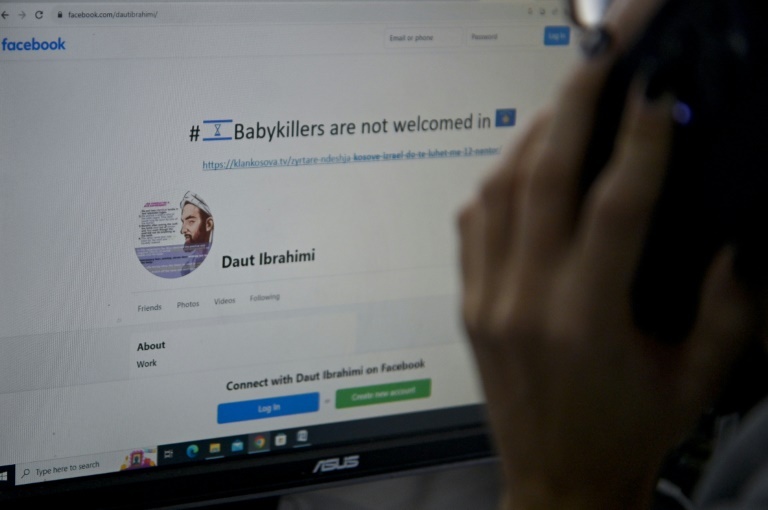Security increased in Kosovo before Israel clash


Although a vast majority of Kosovo citizens are Muslim, it considers itself the most pro-US state in the world and firmly adheres to its most important ally's foreign policy.
However, after dozens of messages criticising Israel's military campaign in Gaza began to circle social media under the hashtag #BabyKillersAreNotWelcomedHere, Kosovo police told local media that they have been "increasing security measures" so that the game "goes as smoothly as other sport events".
Kosovo authorities have already announced that each of the 14,000 tickets released for Sunday's game will be personalised, and only fans that present both tickets and their ID cards will be allowed into the Fadil Vokrri stadium. The Football Federation of Kosovo (FFK) admitted that they considered holding the game in an empty stadium due to security reasons.
"After the meeting with UEFA, the decision was made to play the game with spectators," Agim Ademi, the chairman of the FFK told local media. He added that all the measures foreseen by the UEFA regulations will be taken, so that the match is not followed by any possible incident.
The game was originally scheduled to take place on October 1th5 but was postponed after Hamas fighters poured across the border with Israel on October 7th, killing 1,200 people, mostly civilians, and taking around 240 hostage. According to the Hamas-run health ministry in Gaza, more than 11,000 Palestinians, mostly civilians and many of them children, have since been killed across the Gaza Strip in Israel's retaliatory bombardments and ground offensive.

'Respect'
After the conflict began, several marches in support of Palestinians in Gaza were organised in Pristina, while Israeli victims were also honoured. The official Kosovo national team fan group called Dardanet has urged the crowd to focus on "support of our national team" and pleaded with them not to indulge in offensive chants.
"By respecting the rules, we respect our country," Dardanet said in a statement. Pristina residents who spoke to AFP mostly agree that healthy sports rivalry should be the number one priority ahead of the match. "What is happening in Gaza, especially the killing of children and the civilian population, is not right," 40-year-old economist Agron Jashari said, adding that "sport must be separated from politics".
Many in Kosovo make alignment with the foreign policy of the United States a priority. Washington remains Israel's most important international ally but also championed Kosovo's 2008 declaration of independence from Serbia. "The Israeli team should still be admitted," said 53-year-old businessman Bardhyl Bislimi, adding that cancelling the match would be "an own goal", bearing in mind that "Israel is America's number one ally."
Although the government in Pristina has not commented on the ongoing conflict, it has established diplomatic relations with Israel in recent years and became the first Muslim-majority territory to recognise Jerusalem as the Israeli capital by opening an embassy in the city. In 2016, Kosovo police - alongside their colleagues from Albania and North Macedonia - thwarted potential simultaneous attacks from the Islamic State group on the Israel squad that was playing a World Cup qualifier in Tirana and another target in Kosovo.
Nineteen people were detained, while eight ended up behind bars for up to 10 years.
Israel are currently third in Euro qualifying Group I, five points behind leaders Romania, and retain a good chance of making it through to next year's finals in Germany. Following the match in Pristina, however, they must squeeze another two games into the window where other teams play twice: they play second-placed Switzerland next Wednesday and Romania on Saturday, both 'home' games to be played in Felcsut in Hungary. Kosovo are four points further back in fourth.


